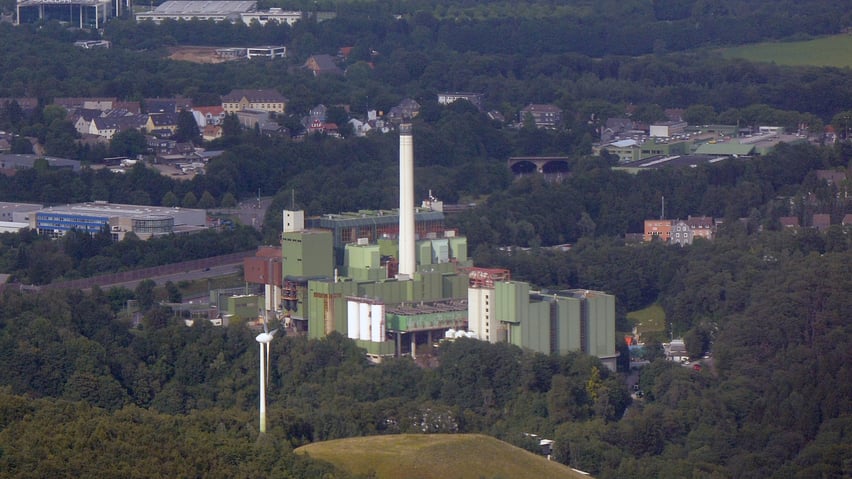
As one of the early pioneers of waste-to-energy, Wuppertal in the German state of Nordrhein Westfahlen, is using local waste to produce green hydrogen to power the city's growing fuel cell bus fleet. In Wuppertal's hilly landscape, fuel cell buses are proving particularly advantageous, delivering better performance, longer range and more service hours than battery electric alternatives.
Wuppertal's green initiative combines sustainability and technological advancement, leveraging Ballard Power Systems’ fuel cell engines to power buses using hydrogen derived from local municipal waste. By integrating a waste-to-wheels initiative into the city's energy supply, Wuppertal is using this forward-looking circular approach to deliver true zero-emission urban transport to its citizens.
Central to Wuppertal's environmental efforts is its zero-emission bus fleet. The first 10 fuel cell buses were introduced into service as part of the Joint Initiative for hydrogen Vehicles across Europe (JIVE) project in 2019. Today, the fleet runs 20 hydrogen-powered buses which are an essential component of the region’s public transport system. In 2025, Wuppertaler Stadtwerke (WSW) will bring an additional 32 decarbonized buses powered by Ballard's hydrogen fuel cells into operation - by which point 17% of its 300-vehicle fleet will run on hydrogen. The last diesel buses are due to be phased out from the city's depots by the start of 2040.
Running side-by-side with battery electric buses in the zero-emission fleet, the fuel cell buses offer two specific advantages for Wuppertal. Firstly, the uncompromised performance of fuel cell buses when tackling the region’s hilly landscape surpasses that of battery electric buses significantly. Secondly, and what sets Wuppertal's project apart, is the source of its hydrogen fuel waste.
AWG Wuppertal, the company in charge of the city's waste management, plays a pivotal role in this innovative process. AWG transforms municipal waste into energy, a portion of which is then used to produce hydrogen fuel. Electricity from the biogenic portion of the waste makes the hydrogen green, referring to the amended Renewable Energy Sources Act. All WSW hydrogen buses are therefore green or CO2-neutral from energy production to the wheel of the bus.
 The process starts at the waste incineration plant next to Wuppertal's central bus depot, where rubbish is converted into energy. This energy is utilized to power a 2MW electrolysis unit, which separates water into hydrogen and oxygen, and produces approximately 400kg of hydrogen per day. The resulting hydrogen is supplied to the bus depot's on-site filling station, which has been in operation for more than four years. The daily hydrogen requirement for the regular buses specified by WSW is 325 kg. Because the waste-to-energy plant provides electricity 365 days a year, AWG can easily meet this demand.
The process starts at the waste incineration plant next to Wuppertal's central bus depot, where rubbish is converted into energy. This energy is utilized to power a 2MW electrolysis unit, which separates water into hydrogen and oxygen, and produces approximately 400kg of hydrogen per day. The resulting hydrogen is supplied to the bus depot's on-site filling station, which has been in operation for more than four years. The daily hydrogen requirement for the regular buses specified by WSW is 325 kg. Because the waste-to-energy plant provides electricity 365 days a year, AWG can easily meet this demand.
Green hydrogen coming from waste incineration also has the potential to power stationary fuel cell systems that generate green energy on demand to charge battery-electric buses, offering further opportunities for delivering true zero-emission public transport and e-mobility in cities while reducing strain on the local grid.
Wuppertal's journey from waste-to-wheels stands as a stellar example of how cities can innovate in response to environmental challenges, leading the way in sustainable urban living.